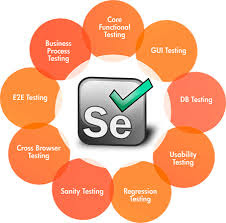Choosing the Perfect Laptop for Aspiring Programmers
So you've decided to embark on
the exciting journey of learning to code! As a coding newbie, you might be
wondering: what kind of laptop do I actually need? Don't worry, this guide will
equip you with the knowledge to pick the perfect machine to kickstart your
coding career.
Prioritizing Power:
·
Capable
Processor: While you don't need a
top-of-the-line CPU, having a recent, quad-core processor (like Intel's 11th
Gen or AMD's Ryzen 5000 series) is a good starting point. This will ensure
smooth operation of coding programs and basic development environments.
·
RAM
for Maneuvering: 8GB of RAM is the minimum
recommended amount for a beginner's coding laptop. This allows you to run
essential programs like code editors and web browsers without encountering lag.
If you plan on venturing into more demanding areas like game development later,
consider upgrading to 16GB for a more future-proof option.
Storage Strategies:
·
Speedy
SSD: Solid-State Drives (SSDs) are
an absolute must for a coding laptop. The blazing-fast loading times will
significantly improve your experience. Opening programs, compiling code, and switching
between projects will feel much snappier with an SSD. While storage space might
be lower than a traditional Hard Disk Drive (HDD), you can always use an
external HDD for media files and long-term project storage.
Balancing Budget and
Needs:
·
Finding
the Sweet Spot: Remember, you don't need the
most powerful machine on the market to learn the basics of coding. Look for
laptops with mid-range processors and prioritize features like a comfortable
keyboard and a decent screen. Finding a balance between affordability and
functionality is key.
Beyond the Specs:
· Keyboard Comfort: A comfortable keyboard is crucial for long coding sessions. Consider keyboards with good key travel and backlighting for nighttime coding.
·
Display
Decisions: While high-resolution displays
are great, they can also be more expensive. A Full HD (1920 x 1080) resolution
is perfectly suitable for most coding needs. If you plan on doing a lot of
multitasking, consider a larger screen size or even a dual-monitor setup (using
an external monitor) for improved workspace real estate.
Operating System
Options:
·
Windows
vs. Mac: Both Windows and macOS are
great options for coding beginners. Windows laptops tend to be more affordable,
while MacBooks are known for their user-friendly interface and excellent build
quality. Ultimately, the choice depends on your personal preference and budget.
Many popular coding languages and tools are compatible with both operating
systems.
Examples of
Budget-Friendly Options:
Here are a few examples of
laptops that are suitable for coding beginners:
·
Microsoft
Surface Laptop Go: This lightweight and portable
option offers a comfortable keyboard and a long battery life, making it perfect
for coding on the go.
·
Acer
Aspire 5: This mid-range laptop provides
a good balance of performance and affordability, with a decent processor,
enough RAM for basic coding tasks, and an SSD for fast loading times.
·
Apple
MacBook Air (M1 chip):
While on the pricier side, the M1 chip in this MacBook Air offers excellent
performance and battery life, making it a great choice for those who prefer the
Apple ecosystem.
Remember: The best laptop for you depends on your
individual needs and budget. Don't be afraid to do your research and compare
different options before making your final decision. Happy coding!






Comments
Post a Comment